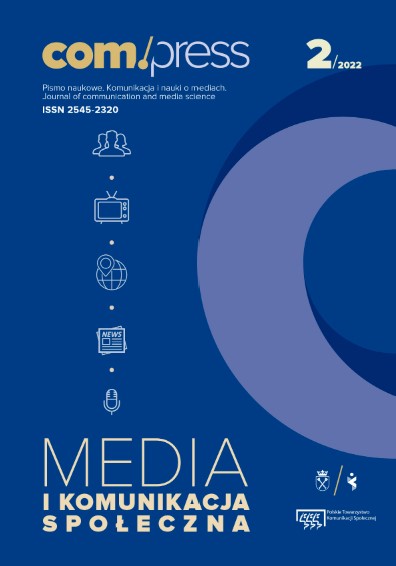Challenges and Benefits of Tele-therapy and Using Digital World in Art Therapy Practice: An Integrative Review
Challenges and Benefits of Tele-therapy and Using Digital World in Art Therapy Practice: An Integrative Review
Author(s): Seyedhamid TabaeiSubject(s): Social Sciences, Media studies, Communication studies, Theory of Communication
Published by: Instytut Dziennikarstwa, Mediów i Komunikacji Społecznej, UJ / Polskie Towarzystwo Komunikacji Społecznej
Keywords: art therapy; digital arts media; digital technology; integrative review; online therapy; telehealth
Summary/Abstract: Objective: Considering that the capabilities of technology to conduct psychotherapy remotely are expanding, practitioners could benefit from discussions on the pros and cons of using cyberspace in art therapy. Thus, the aim of this integrative review is to present and contrast the negative and positive features of online art therapy. Methods: An integrative review of peer-reviewed literature on the use of digital technology in psychotherapy and art therapy was conducted. Not only studies that presented empirical outcomes were included but also observational and qualitative studies in which the effectiveness of e-therapy and online art therapy has been evaluated were considered. Results: The literature review indicates high clients’ and therapists’ acceptance and multiple positive aspects of this method of psychotherapy such as cathartic pleasure and multimodal expression environment. Nevertheless, art therapists wishing to conduct psychotherapy online face some challenges, including lack of tactile qualities and difficulty in managing and handling crisis situations at a distance. Conclusion: Although cyberspace provides the freedom of expression for clients and art therapy services are available around the world, the need of technology proficiency limits the access to this type of therapy. Additionally, ethical concerns include reduced trust in a therapeutic relationship and losing the control over conducting online psychotherapy sessions in crisis. However, reducing clients’ resistance to online therapy can become possible by using convenient technologies. Moreover, participants of online art therapy can be more autonomous, despite the lack of tangible physical engagement with online media that leads clients to disconnecting from social interaction.
Journal: Com.press
- Issue Year: 5/2022
- Issue No: 2
- Page Range: 60-73
- Page Count: 13
- Language: English

